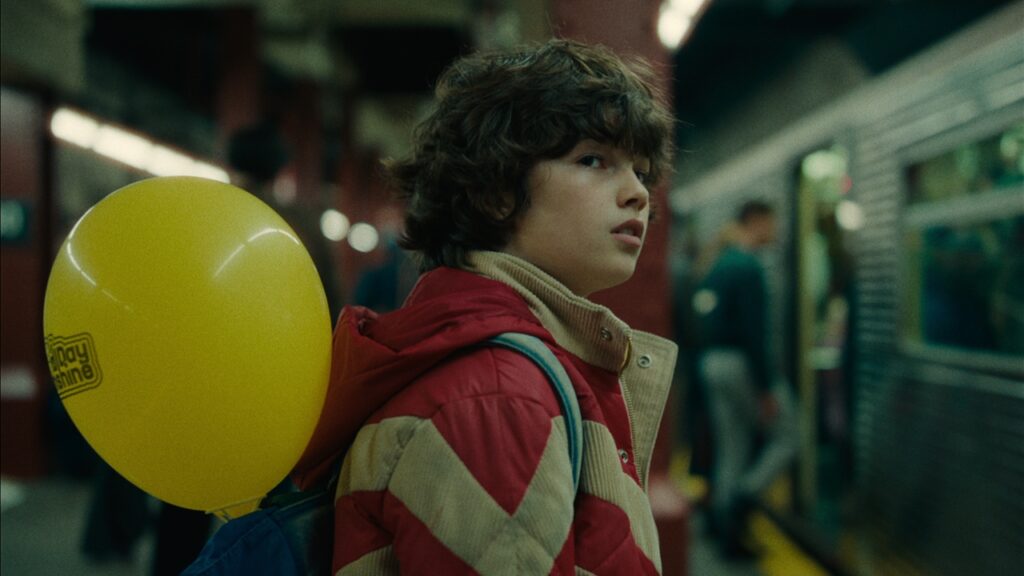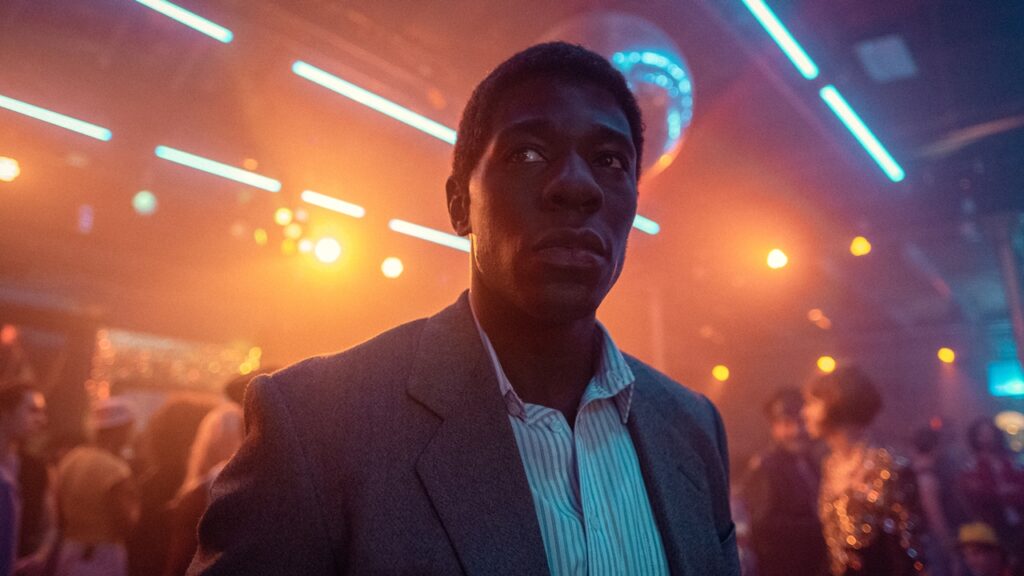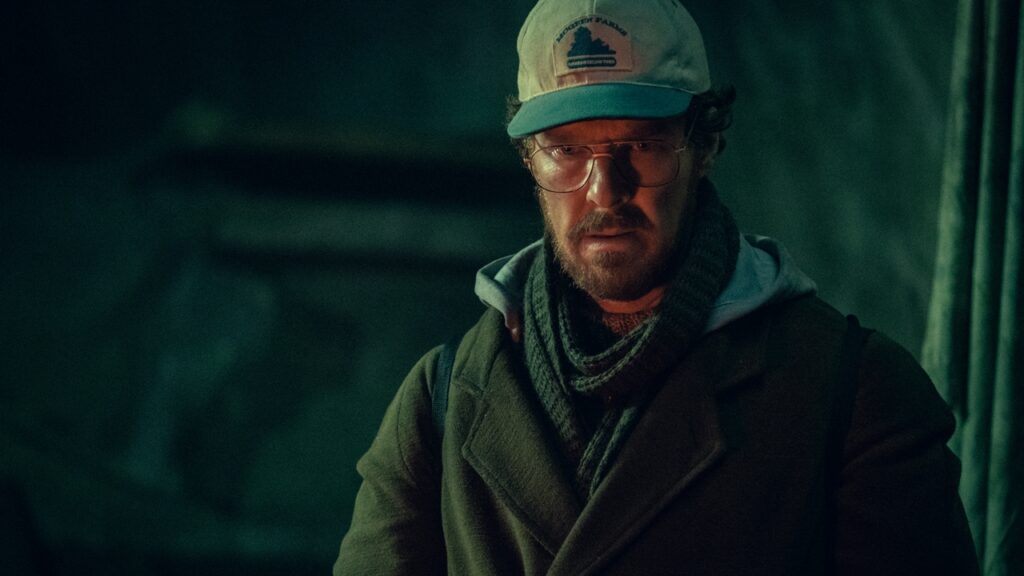Read also:
How to Watch FX Live Without CableHow To Watch AMC Without CableHow to Watch ABC Without CableHow to Watch Paramount Network Without CableEric is a tough sit. Whether that sit is worth the difficulty is a question I struggled with before tentatively arriving at yes.
The story begins as a tale of a missing child, Edgar (Ivan Morris Howe), the son of Vincent (Benedict Cumberbatch) and Cassie (Gaby Hoffmann). After the couple’s latest row the night before, Edgar doesn’t wait around for them to sort themselves in the morning. Instead, he walks to school on his own as his father tries to make amends with his mother. But Edgar never arrives at school that day.
Vincent is a creator and puppeteer on a formerly top-rated children’s show—think Sesame Street with no on-screen humans and only one set—with his creative partner Lennie (Dan Fogler). Edgar, aware of the show’s downturn and the need for a new puppet, has been doodling and dreaming up just the solution, the titular Eric. When Edgar disappears, Vincent’s desperate and possibly delusional reaction is to finish his son’s work on the giant felt monster. He reasons that if his son could only see the puppet on television, the boy would understand how important he was to his parents and come home. Others, confident Edgar is not gone of his accord and likely no longer alive, cannot get on board with the plan.

If this were all the series’ six episodes were about, a dysfunctional family navigating their child’s disappearance, it would be plenty heavy. However, as the hours tick by, the show continues to adorn itself with other questions. Set in the New York City of the 80s, Eric steadily mines the social and political issues of that era in the City. Police and government corruption, a growing unhoused population, racism, homophobia, AIDS, and sexual trafficking all play notable roles in how the plot unfolds. In the microcosm, suicide, grief, adultery, the legacy of parental neglect and cruelty, and the limits of friendship all come to bear.
As a result, by around the halfway mark, Eric feels far more invested in other storylines than Edgar’s fate. It is the catalyst for many things, but as its own distinct concern, it seems almost like an afterthought. In its place, the series becomes far more invested in Vincent’s increasingly unpleasant and unraveling behavior and Missing Persons’ Detective Ledroit’s (McKinley Belcher III) struggling to reckon with an encroaching personal tragedy and colleagues who stress how important the case is one moment and then interfere with his investigation the next.

It’s understandable why series’ creator and only writer Abi Morgan would be most interested in those plotlines. Cumberbatch makes a compelling and repulsive figure. He’s so obviously wounded but unable to accept even the smallest of kindnesses without lashing out, often by cruelly mocking those closest to him. Belcher has less chance to go volatile, but he has a far more extensive range of notes to play. Among the show’s most memorable moments are two wordless scenes with him in the final episode’s last ten minutes. The supporting cast also rises to the occasion. Standouts include Hoffmann, an unhoused graffiti artist played by Bamar Kane, Erika Soto’s NYPD administrative assistant.
Director Lucy Forbes and cinematographer Benedict Spence do an excellent job creating a sense of time and space in Eric. They avoid the trap of larding up the series with so many era signifiers that it feels like parody. More importantly, they do it without stranding the story in a generic version of NYC. Their New York is a chaotic, busy place with plenty of problems, yes. But it is not the crime-riddled nightmare that many other stories set during this time feel compelled to depict. As a result, it feels more authentic even if it doesn’t “read” as immediately of the time as those other efforts.

Unfortunately, the sidelining of Edgar’s disappearance is a weak point that hurts the show. There’s something unshakably unpleasant about making a child’s possible abduction or death into a vehicle to explore his father’s pain and a city’s larger problems. It becomes more acute when the possibility arises that Edgar and another missing boy’s fate might be linked. For these elements to interact is a valid storytelling choice, but not at the expense of the missing boy(s).
Another drawback is some of the conclusions the series’ draws are a bit shallow and immediately evident. No one should need 6 episodes to realize the parallels between Eric and another member of the cast, for instance. It’s not that the show can’t point out those similarities. However, as the story does it, what could’ve been a strong running plotline becomes a silly “revelation.” The furry puppet manifesting as Vincent’s antagonist and conscience is a similarly unsatisfying device. It never pays off as strongly as it should.
Still, strong worldbuilding and excellent performances make Eric a series that one cannot easily write off. It’s bitten off far more than it can chew, but the stories it does tell are worth watching.
Eric hits the streets May 30 at Netflix.